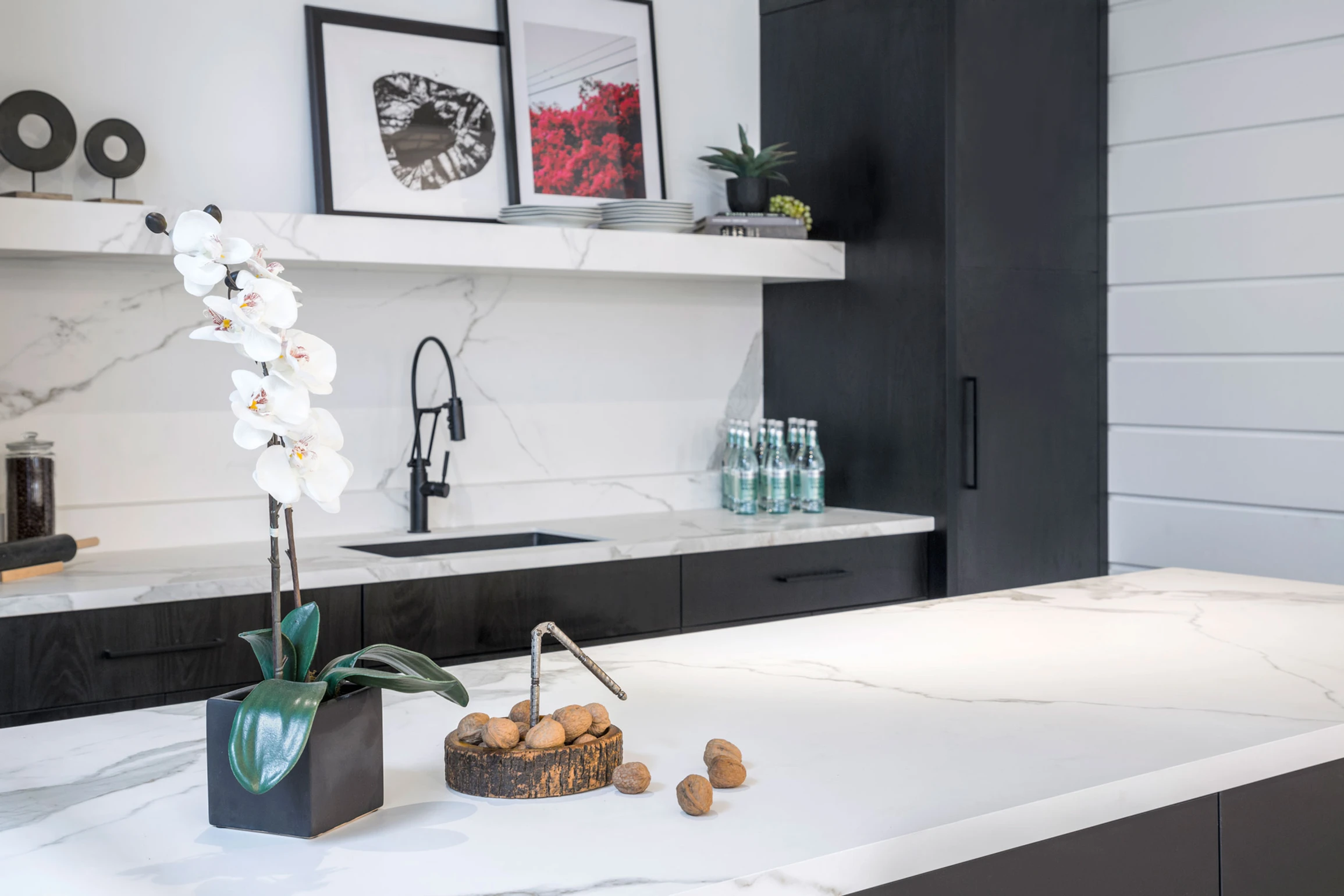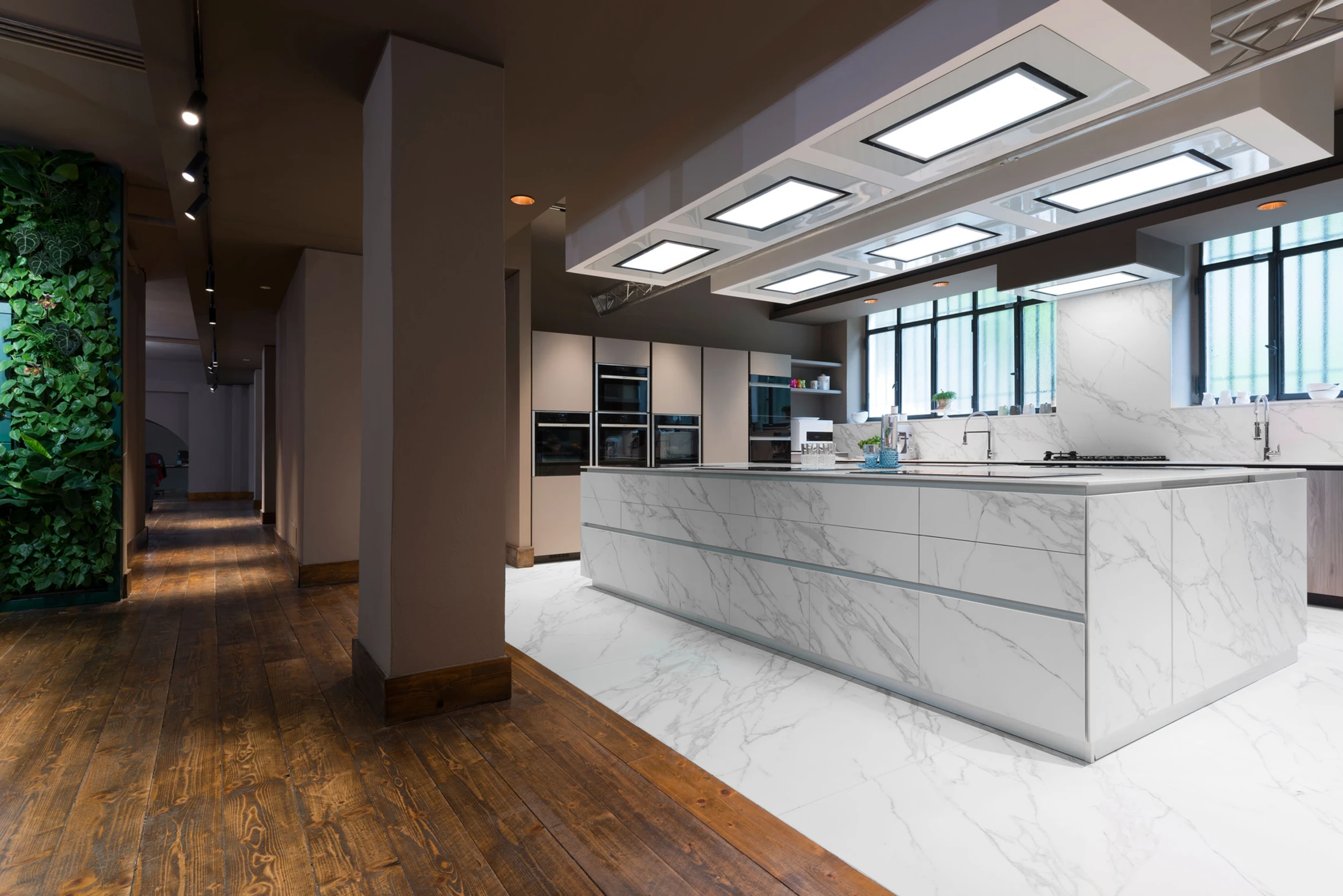- Home
- SINTERED STONE. Tough to beat
SINTERED STONE. Tough to beat

But what is sintered stone?
Sintering (also called “ultra-compact surfacing”) is the process of compacting and forming a solid mass of material by heat or pressure without melting it to the point of liquefaction. Sintering happens naturally in mineral deposits or as a manufacturing process used with metals, ceramics, plastics, and other materials.
Sintered stone is a new and innovative material category where the finest natural minerals are exposed to extremely high pressure (5900 PSI) and temperature (over 2700o C) in a furnace — giving the product outstanding physical and mechanical properties in terms of compaction, resistance and durability.
Pros
Benefits of surfaces like stone and quartz without the drawbacks of porosity, staining, and other limitations of those materials
Very heat resistant; some products can integrate induction cooking features right into the material Tolerant to all temperature extremes making these surfaces good for outdoor kitchens Some products have “through-body” construction meaning their colour goes through the material Product sizes large enough to cover kitchen islands and large areas similar to natural stone slabs
Very durable surfaces; non-porous, highly resistant to physical damage like scratching and cracking
Cons
Requires skilled trades and proper equipment for fabrication. Availability of experienced installers familiar with these products may be limited
Cost is generally in the mid to high-end range for countertop surfacing; can be expensive depending on the specific product


Resistant to ice and freezing
Neolith® is not damaged by low temperatures
Resistant to UV Rays
Since the color is 100% natural, it does not deteriorate due to exposure to the sun or extreme temperatures
Resistant to bending
A high modulus of rupture. Resistant to high pressure and weight loads.
Waterproof
Waterproof and liquid-resistant. With an absorption level near zero.
Resistant to high temperatures
Does not burn in contact with fire or let off smoke or toxic substances
Light
The 3 mm slab is only 7 kg/m² and the 12 mm slab, 30 kg/m².
Hygienic
Does not release harmful substances. Completely suitable for contact with food.
Suitable for High Traffic
Due to the hardness of the surface.
100% Recyclable
Up to 52% of any Neolith board is comprised of recycled raw materials.
Easy to clean
Resistant to chemical cleaning agents.
100% Natural
Resin-free. Does not release any harmful substance into the environment.

